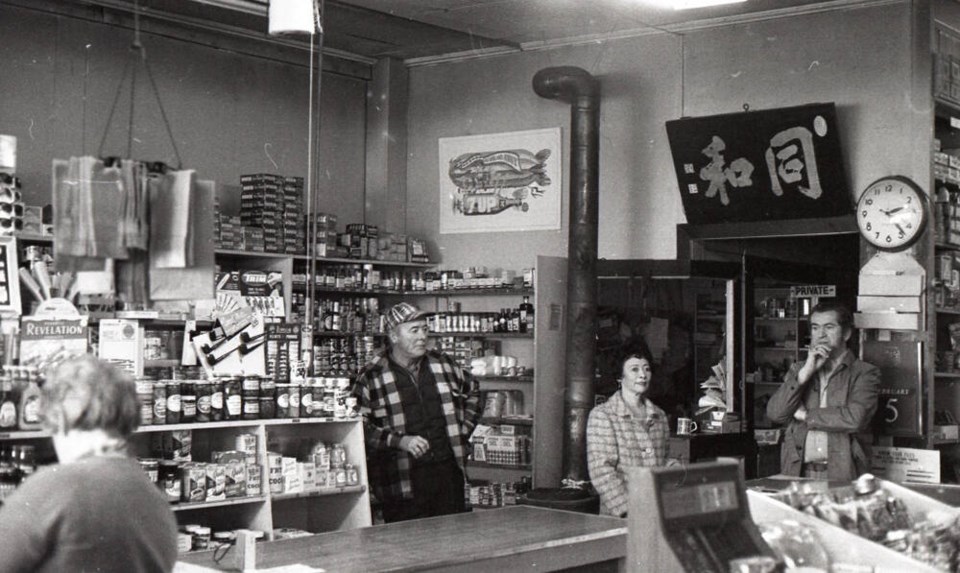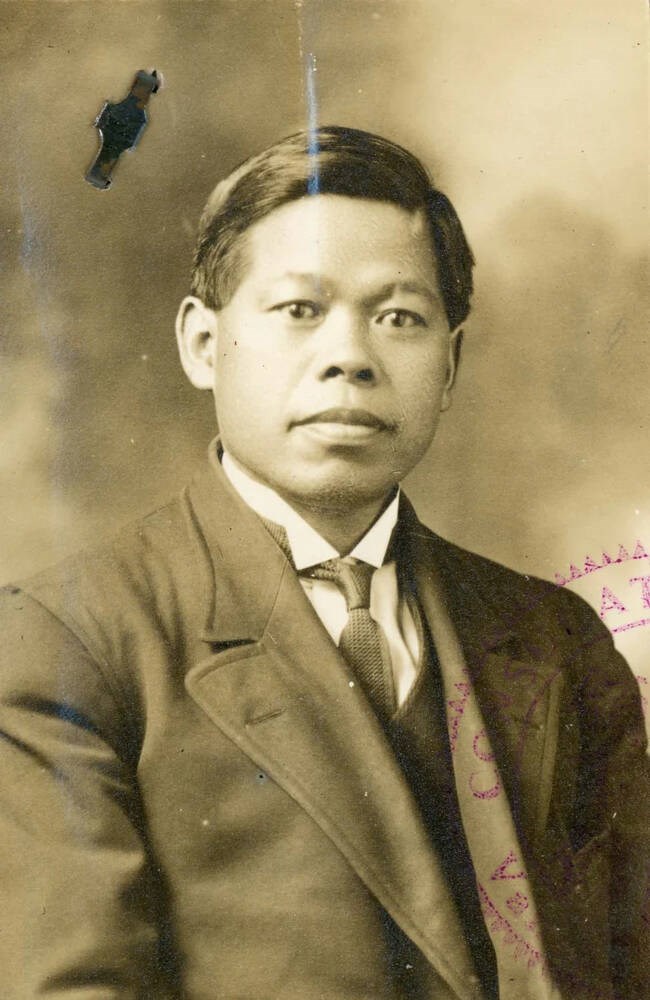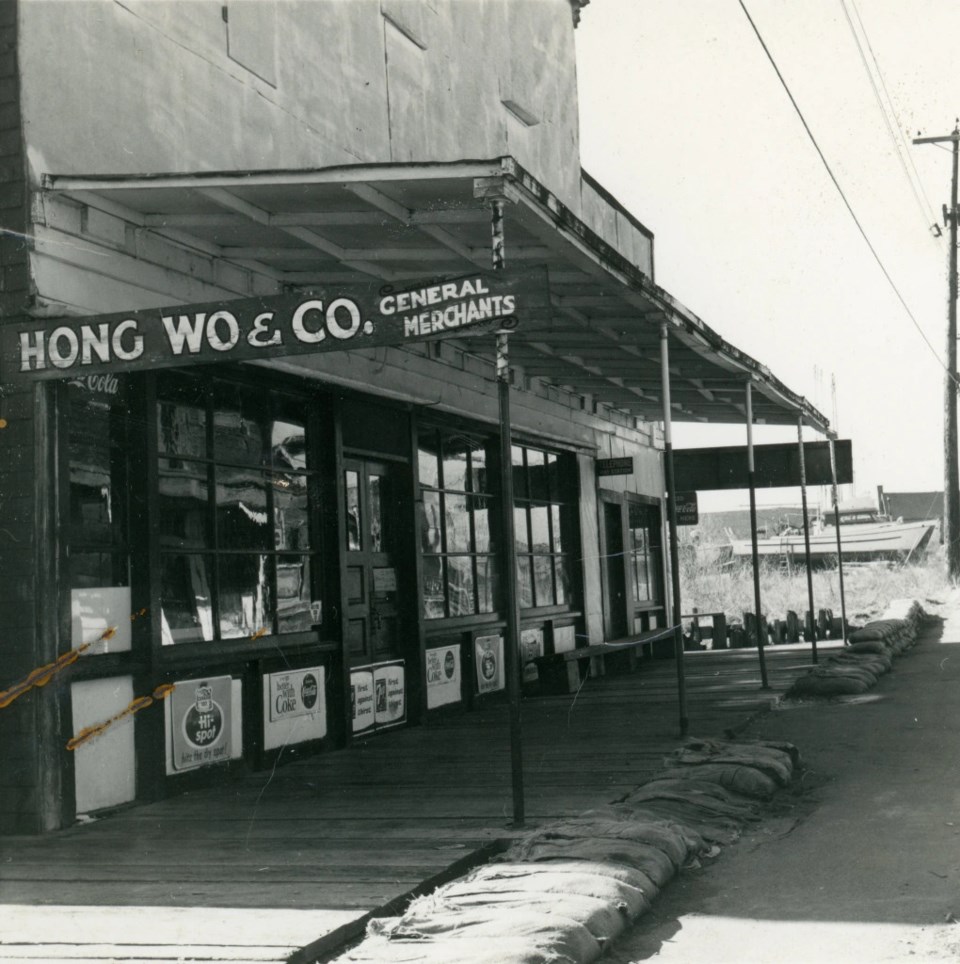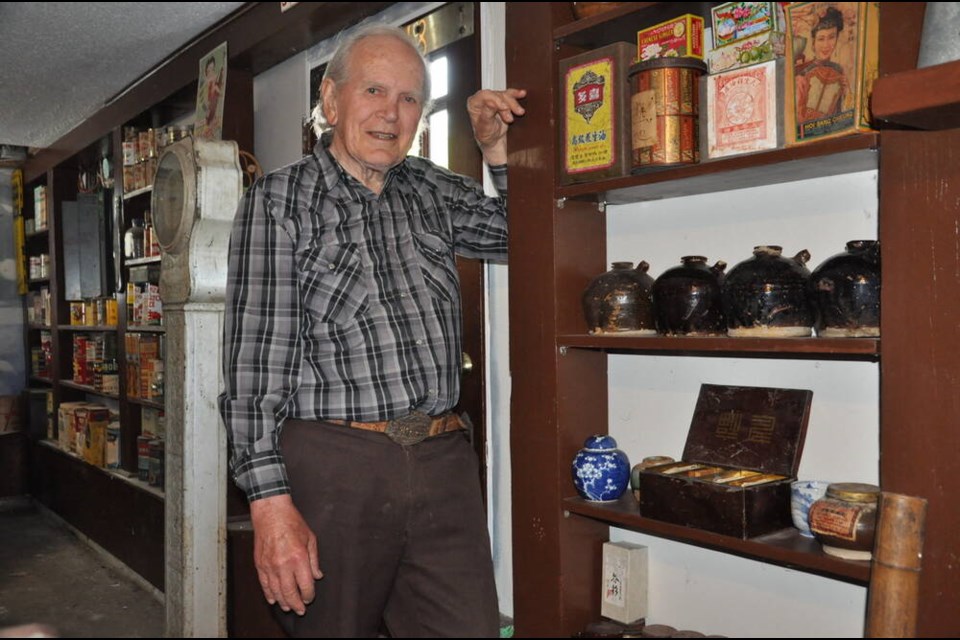Delivery and pick-up services have greatly increased the convenience of people’s lives today, but did you know a Richmond store had services like these more than 100 years ago?
Hong Wo was a two-storey general store in Steveston, founded and run by entrepreneur Ling Lam on the banks of the Fraser River close to where the Britannia Heritage Shipyards now sit.
It served as a critical part of Richmondites’ everyday life when the “city” was still a small village with mostly farmland.
Selling everything from Shanghai facial cream to Sunny Boy cereal and fresh fruit to fishing gear, the store was an essential part of the glorious fishing days of Steveston, where fishermen would stock up their boats with weekly supplies.
It was also a place where people met to have a conversation, right up until it closed in 1971, before being demolished in 1977.

For those who were too young to visit the store, they can soon have a sense of how it looked, because retired city councillor Harold Steves is going to recreate it in his basement with some of the original items sold in the store.
“It was one of the earliest department stores in British Columbia… historically, it’s probably the most significant store that Richmond has ever seen, and it lasted for about 80 years,” said Steves.
“It’s very important to show the past, show where we came from and where we should be going…We keep repeating the mistakes of the past, so we have to tell the story of the good times and the bad times when you get along as well.”
The first ‘superstore’ in Richmond
Steveston resident Kelvin Higo remembers the days when he spent his pocket money to get a bag of chips from Hong Wo in the 1960s.
“To me, they were the first superstore in Richmond, because they sold everything from food, meat, dairy products, to gumboots, fishing supplies, and they would provide all the supplies to the fish boats leaving for the fishing grounds,” said Higo, who visited the store all the time back then.
“And they were very successful.”
In 1895, Ling Lam, a man from China who worked in the canneries in Steveston and sold home-made bakery goods on the side, opened his store outside the dyke near the foot of Trites Road.
He named the store Hong Wo, which means “Peace Together” or “Living in Harmony” in Chinese.
“It’s interesting that Ling Lam called his place that because they were actually living in harmony,” said Steves.
He said when the store opened, there were about 10,000 people living in Steveston and the population was evenly divided among Japanese, Chinese, Caucasians and First Nations. People would drop by and have a chat while picking up what they needed at the store.
“[Lam] was an extremely enterprising individual,” said Steves.

The store offered pick-up services to fishing boats – fishermen would tie up their boats on the dock, mark off the list for a week or two weeks’ supplies, hand it to the clerk, and come back in an hour or two – and everything would be in a box.
“In the 1940s, I remember they had a black delivery truck that went up and down Steveston Highway and they had groceries in the back of the truck,” Steves recalled.
“When they came by, my mother would go out and buy the groceries right off the truck. I think they had a regular route and probably do the same time every week so all the families were waiting for them to come.”
There was also an opium den on the upper floor before opium was outlawed in 1918.
“There were little rooms with a bed in it and a door on it with a window so an attendant can watch to make sure the person was all right,” said Steves.
Store demolished in fire practice
Lam, who was also a Chinese labour contractor for the canneries and owned 11 acres of farmland, a pickle factory and several bunkhouses to house Chinese workers, passed away in 1939.
The diligent entrepreneur only took two holidays in his life, as recalled by his family, and those were going to California to look for seeds.
The store was then taken over by his son George and daughter Jessie, who operated it until 1971.
“I think they just retired. Unfortunately, they left the building with a lot of the stuff still in the store so it got vandalized by people,” recalled Higo.

Steves, a friend of Jessie, took some of the items to store in his house, before the city demolished the premises and surrounding buildings in 1977 in a fire practice.
On one side of his basement is a shelf full of cans and empty bottles, including milk, butter, pasta and tomato juice, and the shelf on the other side is stacked with products imported from China.
There are also boxes full of items such as children’s rubber shoes and a waterpipe.
For decades, Steves has been advocating for a historical site to be built in Richmond, similar to the Burnaby Village Museum, where replicas of historic landmarks such as Hong Wo would be on display – the latest council discussion took place in 2021 on potentially turning the Phoenix Gill Net Loft into a museum.
But the idea wasn’t realized before Steves retired last year.
“All of these [items] would have gone to the Phoenix Gill Net Loft to represent the Chinese history, and then we would have equal amount of material to represent Japanese history, First Nations and so on,” said Steves.
“But Richmond isn’t doing anything about it, so I’m going to do it here on my own house and then maybe somebody will realize it may just be worth doing.”


